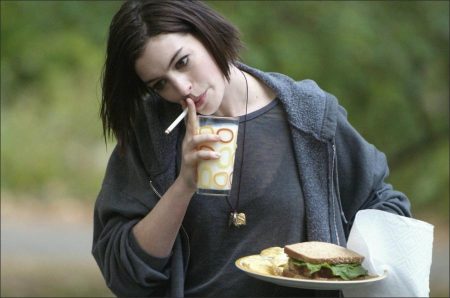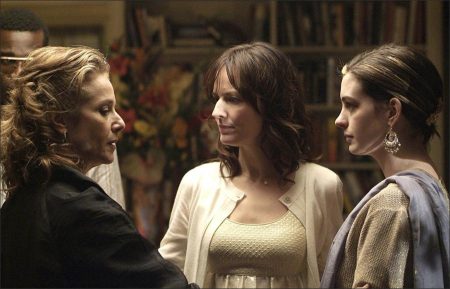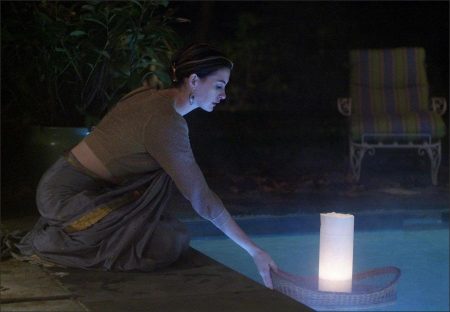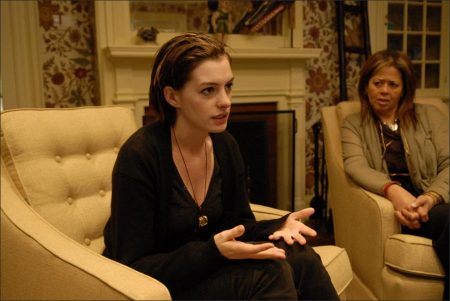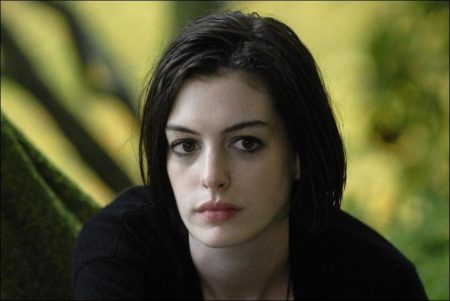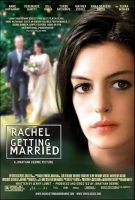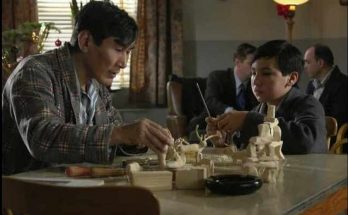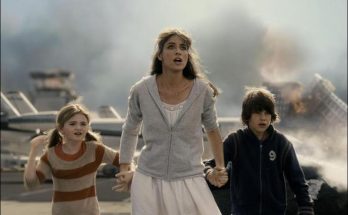Rachel Getting Married Movie Trailer. Like the free-form shooting style, the music was an integral element played out with unconventional freedom. “For the longest time,” recalls Demme, “I’ve had this desire to try to provide the musical dimension of a movie without traditionally scored music. I thought: wait a minute, in the script, Paul is a music industry bigwig, Sidney’s a record producer, many of his friends will be gifted musicians, so of course there would be nonstop music at this gathering.
Following that logic, we have music playing live throughout the weekend, but always in the next room, out on the porch or in the garden.” Among the legion of musicians, dancers, and performers whom Demme enlisted to fill the ranks of the wedding party, jazz great Donald Harrison, Jr. and Palestinian virtuoso Zafer Tawil, contributed original throughline musical themes and are credited as composers (they also brought along plenty of accompaniment: Harrison‘s Grammy-nominated nephew Christian Scott shows up to jam at the reception, and Tawil is joined by an ensemble of players from the score of Jimmy Carter Man From Plains including Amir ElSaffar.)
“The musicians were encouraged to play whenever they were inspired to, the more the better, never paying attention to the rolling camera,” explains music supervisor and editor Suzana Peric’, who has worked on every Demme film since Something Wild. “Musical anarchy on the set. Bliss for the musicians, big headaches for those who had to record them.“
“At one point,” says Demme, “Anne Hathaway was trying to act out a very intense scene while the musicians noodled around outside. She was distracted and the assistant director came to me and said that she was having trouble, so I said “Tell her to do something about it, then.” That’s when Kym yells at them to shut up—all unplanned and improvised but completely in character.”
Crediting a lifetime in a complicated, artistic family for her screenplay’s perfect pitch, Jenny Lumet says “I’m a good listener” (and watcher—Sidney Lumet did engage once in a dishwasher-filling race—with Bob Fosse). Improvisation expanded on the script’s strikingly authentic dialogue.
For example, Bill Irwin describes how the actors tuned into “…Storytelling that wasn’t on the page. As scripted, my character Paul and Debra Winger’s character Abby, my ex-wife, hardly exchange any dialogue. But Debra and I followed our instincts, and enlarged that relationship without words, through gestures.” That’s the case when Paul and Abby briefly embrace and then pull apart at the end of their daughter’s wedding—a piercing moment for the viewer.
“There were things in the script that Jenny had written in a very pared-down style,” explains Demme. “At script level the wedding progressed through brief snapshot leaps in time. It was scripted that Sidney would sing a song but Rachel’s vows to Sidney weren’t scripted. I told the actors that they had to take us through a complete wedding, and incidentally, they had to stage it themselves. Rosemarie made up Rachel’s speech herself. Beau Sia, who helped plan the rehearsal dinner and wedding with Rosemarie and Anisa George (Emma), was an unscripted character imposed on the filming by casting Beau—an actor and poet I’ve been dying to work with—as kind of a “wedding czar emcee guy”.”
Rosemarie DeWitt points out, “There are times when you feel like Jonathan’s orchestrating everything and nothing at the same time,” an observation echoed by Bill Irwin: “Sometimes it seems like all he’s doing is smiling and making sure people feel good about work day after day. But he knows what he’s after and gets what he wants.”
The movie’s big set pieces, such as the rehearsal dinner, the wedding, and the reception dance party, are densely populated with a wide-ranging assemblage of Demme’s friends, family, colleagues, and other energizing personalities (see the following section, Friends, Musicians, and the Community Spirit for a detailed listing of participants).
“Every person, every face in the film is there for a reason,” says Armian. “Jonathan loves real people, and loves working with his friends, which creates a real camaraderie and ease. We were really having a wedding. I wasn’t a producer, I was a wedding planner. And he invited his friends.” Going local, most of the cast and crew were based in the New York area; “People actually went home at night and saw their families,” boasts Armian.
Beyond the fun factor of a convivial set, Demme explains, “One of the conceits of the script was that, despite the drama, the wedding goes great. Let’s face it, 12 the reason you can have a great wedding is because you get a bunch of people together who hit it off and have a great time at a once in a lifetime event. I couldn’t imagine how that could be “acted” by extras, so I felt that the best thing to do would be to get a fantastic group of people together who meet each other the way people will do. If it takes us five days to film the wedding, we’ll film it in continuity and everyone will get to know each other. At the end, when they are partying together, they really should be partying together.”
“Over the weekend,” continues Demme, “there are two different kinds of gatherings going on: people gathering to have fun at the wedding, and other people engaged collectively in the epic struggle against addiction, gathering together to gain strength from that community on a parallel track. We wanted to show maximum respect for that courage and honesty.”
Hathaway sees those qualities in Kym: “I love Kym’s almost compulsive need for honesty,” says Hathaway, “and how direct she is. Her timing may not be appropriate, but she’s trying so hard to get across the chasm of tragedy that separates her from her family. She’s trying every day to choose joy and sobriety. She’s fighting for her place in the family, trying to acknowledge and atone in her own way. At the end, maybe her sister Rachel understands her journey, and that acceptance is crucial.”
For all that it revels in love and friendship—and a great party—Rachel Getting Married is ultimately focused on that emotional honesty, right to the depths of Kym’s eyes as she hears the sad violin music wafting upstairs.
Rachel Getting Married (2008)
Directed by: Jonathan Demme
Starring: Anne Hathaway, Bill Irwin, Rosemarie DeWitt, Debra Winger, Anna Deveare-Smith, Mather Zickel, Victoria Haynes, Annaleigh Ashford, Eliza Simpson, Tamyra Gray
Screenplay by: Jenny Lumet
Production Design by: Ford Wheeler
Cinematography by: Declan Quinn
Film Editing by: Tim Squyres
Costume Design by: Susan Lyall
Set Decoration by: Chryss Hionis
Art Direction by: Kim Jennings
Music by: Donald Harrison Jr., Zafer Tawil
MPAA Rating: R for language and brief sexuality.
Distributed by: Sony Pictures Classics
Release Date: October 3, 2008
Views: 127
